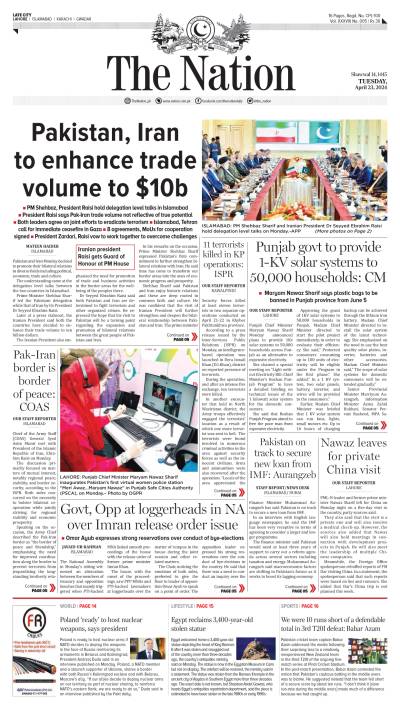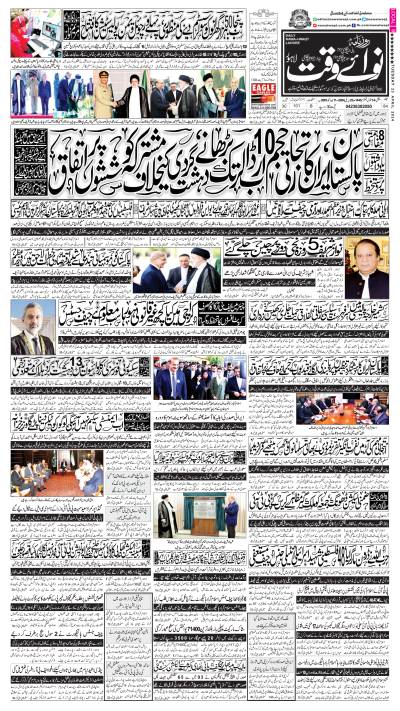Islamabad - There is an urgent need to remove hate material from the textbooks, besides changing attitudinal change of state officials and to develop humane narrative to end intolerance and terrorism from Pakistan.
This was the crux of a consultative workshop titled “Improving Status of Non-Muslim Citizens in Pakistan” organised by Pattan Development Organisation that was held in a local hotel. The participants viewed that there was no public policy at government level to deal with violence against non-Muslim Pakistanis.
Along with senators and MPs a large number of representatives of civil society, non-government organizations, different minorities, media, bar associations and political parties attended the meeting. Senator Rafique Rajwana of PML-N, Chairperson National Commission on the Status of Women (NCSW) Khawar Mumtaz, MPA Ramesh Singh Arora, senior journalist M Ziauddin, human rights activist Tahira Abdullah, senior lawyers Shafqat Abbasi and Koukab Iqbal were key speakers in the workshop.
The participants at the end of the workshop unanimously decided to form a technical working group in order to improve status of non-Muslim citizens of the country. Senator Rajwana, one of the key speakers, in his keynote address said that inter-faith harmony was stronger in the past and suggested that there was need to change attitude of officials. He accepted that past governments had not played their due role in this regard.
MPA Ramesh Sigh Arora stressed that hate material should be removed from textbooks. He added that they should focus on the issue and also quoted some articles of the constitution that give equal rights to all citizens of Pakistan.
Senior Supreme Court lawyer Abbasi said that there was need to address issues of minorities on priority basis. Mumtaz said women belonging to non-Muslim communities live under double burden as marriage and divorce laws did not exist.
In his concluding address, Pattan’s National Coordinator Sarwar Bari said it was not important how many terrorists had been hanged, the real task was to eliminate sources that gave birth to terrorist mindset including removing of hate material.
Earlier, Sarwar Bari shared details of a study report conducted by Pattan on improving status of non-Muslim citizens in Pakistan. The study clearly established a fact that political leadership should take concrete steps to integrate non-Muslim communities by abolishing minority wings of political parties and seats reserved for minorities must be filled through joint electorate system. The study also recommended strongly to hold local councils’ elections without any delay. “Stranglehold of powerful religious lobby and its alliance with civil-military elite not only deprived non-Muslim citizens of their rights but also weakened the sate itself.” Many participants said. One of the findings revealed “More than 80% of the participants of the study agreed that blasphemy laws have tremendously aggravated insecurity of non-Muslim citizens in Pakistan.” The study was conducted in three cities of Punjab (Multan, Faisalabad and Lahore) and Islamabad during the months of November-December 2014. More than 70% participants of the focus group discussions consisted of Muslims, while 30% belonged to various non-Muslim communities.
The study also showed three fundamental articles (20, 22 & 33) of Pakistan’s constitution that guarantee rights of religious minorities have been violated with complete impunity. Sadly, the state actors were also found to be part of this violation.’ Interestingly most of the findings corroborated with the Supreme Court Order of the 18th June. The study also revealed that the government has no policy to deal with faith-based discrimination. The absence of local councils too has aggravated problems of minorities.
More than two-third of the participants of the study believed that due to lack of political will and absence of minorities in decision-making structures of parties situation of non-Muslim citizens have not improving.
The study also concluded that intolerance, extremism and terrorism is product of pro-Jihad policy of the state and there was a gap between public opinion and practice of officials and political leadership. It says that counter narrative is possible to build. In the KAP Survey that was also part of the study, 85 % respondents said that political leaders should mainstream non-Muslims in their party hierarchy and abolish minority wings.
Eight-five per cent agreed that political parties should issue 10% tickets to non-Muslim candidates in those constituencies where they have significant presence. Ninety-three percent agreed to hold local council elections without any delay and elect all local councillors through direct election.
Similarly, 91% respondents agreed that officials must be made sensitive about rights of non-Muslim citizens. Ninety-one percent respondents agreed that officials must be empowered to take action against those who violate rights of non-Muslim citizens. Ninety-six percent agreed that early warning system should be developed to prevent escalation of minor disputes from becoming disasters. Ninety-eight percent agreed that all hate material from textbooks should be removed. At the end, Ninety-six percent respondents agreed that all non-Muslim communities should be meaningfully consulted to amend existing laws or to introduce new legislation in order to eliminate all kinds of discrimination against minorities.
Tuesday, April 23, 2024
Need stressed to remove hate material from textbooks
Improving status of non-Muslims in Pakistan
Russia says there is ‘no basis’ for arms control, strategic stability dialogue with US
12:25 PM | April 23, 2024
PM takes notice of deliberate delay in tax cases
12:14 PM | April 23, 2024
Knowledge without ethics has no value, says Iran president's wife Dr Jamileh
11:24 AM | April 23, 2024
ICT admin arrests over 900 alms-seekers
April 23, 2024
Attock observes Earth Day with tree plantation drive
April 23, 2024
More Rifts in PTI
April 21, 2024
Smuggling Collusion
April 21, 2024
Old Carrots, New Sticks
April 21, 2024
Policitising Tragedy
April 20, 2024
Tehran to Rafah
April 20, 2024
Space print revolution
April 23, 2024
Digital grievance
April 23, 2024
Wonders of VR
April 22, 2024
Toxoplasmosis in big cats
April 22, 2024
Social welfare
April 21, 2024
ePaper - Nawaiwaqt
Advertisement
Nawaiwaqt Group | Copyright © 2024





